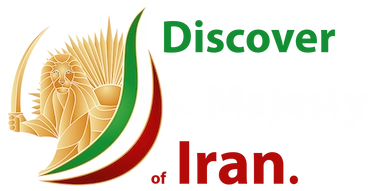Last year, Sarah, a young traveler from Germany, found herself in Tehran on the 13th of Rajab, the Islamic lunar calendar date dedicated to celebrating Iranian Father’s Day. While staying with an Iranian family, she witnessed firsthand the deep-rooted traditions and heartfelt emotions tied to this special occasion. The day began with her host family preparing a delicious breakfast featuring fragrant saffron tea and freshly baked sangak bread. Throughout the morning, they shared memories of their Father’s unwavering support, kindness, and sacrifices. Later, Sarah accompanied them to visit the Father’s workplace, where they surprised him with gifts and heartfelt words of appreciation. She was particularly moved by the respect and gratitude each family member expressed, even the youngest children. As the evening unfolded, extended family members gathered, creating an atmosphere filled with laughter, warm embraces, and shared stories. Sarah’s experience of Iranian Father’s Day was more than just observing a cultural tradition—it was a profound reminder of the universal value of family bonds and the special role fathers play in shaping their children’s lives.
For those seeking to understand Iranian culture, this day provides an inspiring lens through which to view the deep respect and love Iranians hold for their fathers and father figures.
What Is Iranian Father’s Day?
Iranian Father’s Day is a national celebration that coincides with the birth anniversary of Imam Ali, the first Imam in Shia Islam and a revered figure in Iranian culture. As the epitome of justice, kindness, and fatherly wisdom, Imam Ali’s life and teachings serve as an inspiration for this day. The date varies each year according to the lunar Islamic calendar, typically falling in the month of Rajab.
This day is not just a religious event but also a cultural occasion where Iranians honor their fathers and male figures who play pivotal roles in their lives. From heartfelt gatherings to thoughtful gifts, the essence of Iranian Father’s Day lies in expressing gratitude and celebrating the unwavering support of fathers.
How Iranians Celebrate Father’s Day
1. Family Gatherings and Feasts
Family plays a central role in Iranian Father’s Day celebrations. Families come together to prepare and share elaborate meals, often including traditional Persian dishes like kebabs, stews, and saffron-infused desserts. It’s a day to reflect on shared memories and create new ones.
2. Giving Thoughtful Gifts
Iranians traditionally present their fathers with meaningful gifts. These can range from practical items like clothing and accessories to handmade crafts, heartfelt letters, or even symbolic gifts that reflect the Father’s hobbies or interests.

3. Visiting Religious Sites
Many families mark this day by visiting mosques or shrines, particularly those associated with Imam Ali, to pray for their fathers’ health and well-being. For some, this act adds a spiritual dimension to the celebration, deepening its meaning.
4. Acts of Appreciation
Beyond material gifts, Iranian Father’s Day is about expressing love and appreciation through actions. From helping with household chores to organizing surprise parties, children and family members go the extra mile to make fathers feel valued.
The Cultural Significance of Father’s Day in Iran
Father’s Day in Iran extends beyond personal appreciation to reflect broader cultural values. Respect for elders and family unity are deeply ingrained in Iranian society, and this day reinforces these principles. Fathers are seen not only as providers but also as role models who instill values of hard work, integrity, and kindness in their children.
Imam Ali’s connection to the day adds a layer of spiritual significance, reminding Iranians of the virtues of humility, fairness, and devotion to family that fathers are encouraged to emulate.
Insightful Analysis: Why Iranian Father’s Day Matters
Iranian Father’s Day is more than just a celebration; it’s a window into the cultural and spiritual identity of the country. The day emphasizes the importance of family bonds, which serve as the cornerstone of Iranian society. It also provides an opportunity to reflect on how family traditions shape individuals and strengthen communities.
In a fast-paced world where the value of interpersonal connections can sometimes be overlooked, Iranian Father’s Day offers a powerful reminder of the enduring significance of gratitude and respect. It’s a day that not only celebrates fathers but also fosters unity, kindness, and appreciation across generations.
For travelers and those curious about Persian culture, witnessing or participating in Father’s Day celebrations offers an intimate glimpse into the heart of Iranian life—a blend of tradition, love, and reverence that resonates universally.
“Here’s a fantastic video on Iranian Father’s Day: A Celebration of Love and Respect by Barr Pictures Media. I’m embedding it to provide you with additional context, with full appreciation for the creator’s efforts.”

Conclusion: A Celebration That Inspires
Iranian Father’s Day is a unique and meaningful occasion that showcases the rich tapestry of Persian culture. Rooted in religious tradition yet universally relatable, it reminds us of the crucial role fathers play in our lives. From heartfelt gestures to shared meals, the celebrations reflect values of love, respect, and gratitude that transcend borders.
By understanding and embracing such traditions, we not only deepen our appreciation for Iranian culture but also reflect on the universal importance of cherishing family relationships. Whether you’re planning to visit Iran or simply exploring its traditions, Iranian Father’s Day is a beautiful example of how culture and family intertwine to create lasting memories.
So, mark your calendar and join the celebration—it’s a day filled with warmth, inspiration, and love that will stay with you long after it ends.


0 Comments